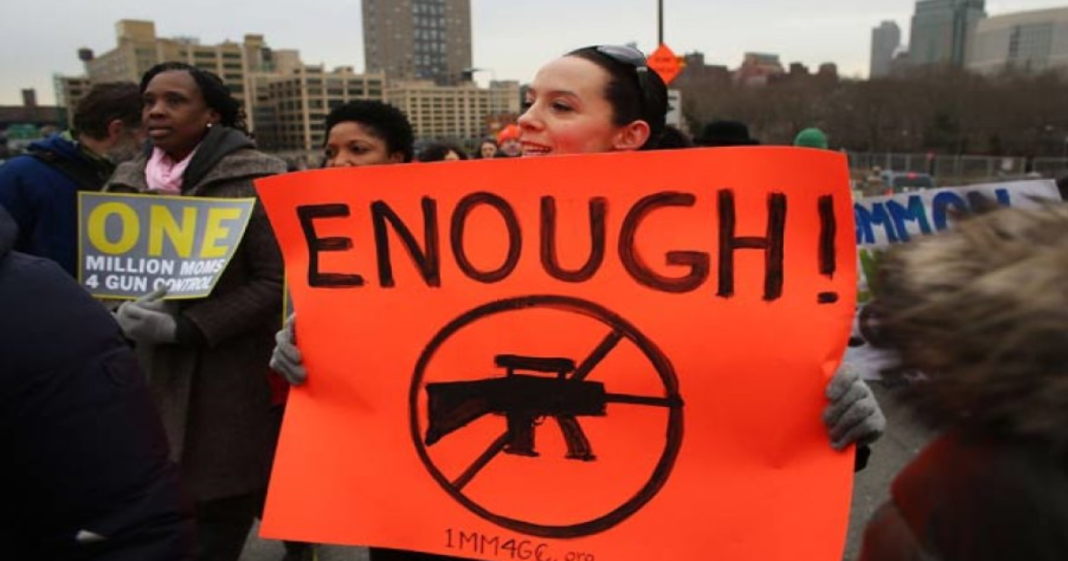How many times have you heard some right-wing gun nut go on a rant about he “don’t want that Big Gummint comin’ ta take mah guns!”? Corey Ray, a spokesperson for the Bureau of Alcohol, Tobacco and Firearms (ATF), hears it quite frequently and finds it hilarious. He says, “Even if we were like, ‘Yeah, we’re coming to take your guns,’ 30 years from now you might get a knock on your door.”
The sorry fact is that the ATF lacks the infrastructure and human resources to do its job. In these days of digital record keeping and instant access to pretty much any and all information, ATF agents are still working the old-fashioned way – combing through records one page at a time, sorting and filing them all by hand. At the same time, the federal agency deals with around 370,000 annual requests from law enforcement agencies, asking for traces on guns used in the commission of crimes or that have been illegally sold or obtained. When such a case warrants expedited action, the ATF can provide such information within a day – but most of the time, it must be done manually.
Under the law, gun records may not be digitized. They must be scanned into image files, meaning they cannot be cataloged like digital documents. Considering that government institutions and corporations know virtually everything about us or can obtain that information at the proverbial drop of a hat, why is the ATF having to work this way?
Blame the National Rifle Association. In 1986, Congress – as beholden to moneyed special interests then as it is today – passed S.49, the “Firearms Owners’ Protection Act” (FOPA). This law was ironically signed into law by then-President Ronald Reagan, himself the victim of a mentally ill shooter with an illegal firearm.
Among other things, FOPA prevents government agencies from maintaining a registry that directly links firearms covered under the 1934 National Firearms Act to the persons owning them. It was a reaction to the Gun Control Act of 1968 which gave the ATF a great deal of power to investigate gun dealers and manufacturers holding a Federal Firearms License (FFL).
The NRA gun lobby, as well as a few FFL holders, eventually claimed that the ATF was abusing its authority, with repeated and “unreasonable” inspections intended to put FFL dealers out of business. A Senate subcommittee report issued in 1982 stated that three-quarters of ATF investigations were “aimed at ordinary citizens who had neither criminal intent nor knowledge, but were enticed by agents into unknowing technical violations.” It further stated that reforms of existing gun laws “would enhance vital protection of constitutional and civil liberties of those Americans who choose to exercise their Second Amendment right to keep and bear arms.”
One of the consequences of FOPA is that it greatly loosened restrictions on the interstate sale and transport of handguns. Not surprisingly, even today, the majority of guns used in the commission of violent crimes in a given location come from outside the state in question.
It is also illegal for the ATF to create a national gun registry database. For that, we can credit Todd Tiahart, a GOP Representative from Kansas. Starting in 2003, Tiahart introduced a series of amendments to federal spending bills, hamstringing the ATF’s efforts by preventing the agency from releasing information to the public and sharing it with local law enforcement. The only exceptions are when a single law enforcement agency asks for such information – and it can legally be shared only with the agency that makes the request. The ATF is also unable to to audit gun dealers and sellers, even when they find that weapons have gone missing.
Neil Troppman, who runs the ATF’s gun tracing program, says that the Bureau is able to inspect only one out of twenty gun sellers each year. He points that each individual ATF agent is responsible for overseeing nearly 235 FFL dealers. The only way to prove a case is to use “undercover agents or criminal informants to go in and prove on camera that the dealer is somehow willingly participating in some sort of criminal activity,” he says. And thanks to the NRA, the ATF simply doesn’t have the manpower.
So – relax, gun nuts. Even if “Big Gummint” did want to come after your guns, the NRA has successfully convinced its handmaidens in CONgress to make that job as difficult as possible. Chances are, they won’t be coming after you anytime soon.




![Senator Schumer: “Single Payer [Health Care] is On The Table”](https://sandbox.trofire.com/wp-content/uploads/2017/07/Universal-Healthcare-218x150.jpg)